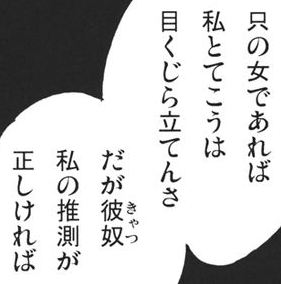I've been reading some Touhou doujinshi in Japanese and checking English version for translation just in case, and I had a hard time trying to decompose this sentence:
I have to give some context [I also included English translation]: a man in this story was asked, why a noble person like him was interested in the appearance of mysterious (yet random) woman in the capital. His answer was:
只【ただ】の女【おんな】であれば私【わたし】とてこうは目【め】くじら立【た】てんさ
If she were just a woman, she wouldn't bother me like this.
Also the man believed, that he might encounter this woman in the past, that's why he said:
だが彼奴【きゃつ】私【わたし】の推測【すいそく】が正【ただ】しければ
However, if my hunch about her is correct...
He believed that he knew her true identity, which he revealed later.
So my question is: what meaning does 「とてこう」 bring into this sentence? How should it be decomposed? Is it 「と」, that is connected to 「私【わたし】」, or is it 「とて」?

